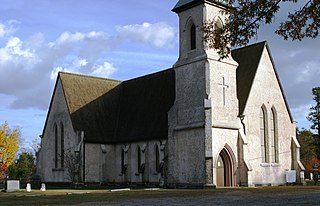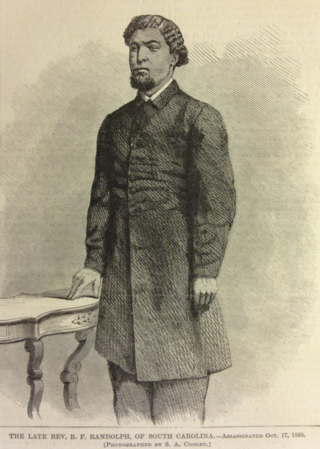Beaufort County

- Beaufort National Cemetery in Beaufort; NRHP-listed
- Edgar Fripp Mausoleum, St. Helena Island Parish Church in Frogmore; NRHP-listed
- St. Luke's Parish Zion Chapel of Ease Cemetery in Hilton Head Island; NRHP-listed
This list of cemeteries in South Carolina includes currently operating, historical (closed for new interments), and defunct (graves abandoned or removed) cemeteries, columbaria, and mausolea which are historical and/or notable. It does not include pet cemeteries.






The SC Technical College System is a statewide network of 16 technical colleges in South Carolina.

The Episcopal Diocese of Upper South Carolina (EDUSC) is a diocese in the Episcopal Church.
Doar is the surname of an aristocratic family in the southern United States. Prior to the American Civil War, family members were among the largest landowners in the South. The family's fortune in the U.S. originates mainly from plantations in Charleston, Georgetown, Berkeley, Orangeburg, Barnwell and Beaufort Counties, South Carolina. Among the plantations that the Doar family owned are: Doar Plantation, Doar Point Plantation, Palo Alto, Harrietta, Woodville, Walnut Grove, Montgomery, Oak Grove, Buck Hall, Egremont, Elmwood, Woodside, Hopsewee, Wedge and Windsor.

The 1992 United States House of Representatives elections in South Carolina were held on November 3, 1992, to elect the six U.S. representatives from the state of South Carolina, one from each of the state's six congressional districts. The elections coincided with the 1992 U.S. presidential election, as well as other elections to the House of Representatives, elections to the United States Senate and various state and local elections.

The High Hills of Santee, sometimes known as the High Hills of the Santee, is a long, narrow hilly region in the western part of Sumter County, South Carolina. It has been called "one of the state's most famous areas". The High Hills of Santee region lies north of the Santee River and east of the Wateree River, one of the two rivers that join to form the Santee. It extends north almost to the Kershaw county line and northeasterly to include the former summer resort town of Bradford Springs. Since 1902 the town has been included in Lee County.

The 2008 South Carolina Senate elections were held on Tuesday, November 4, 2008. The primary elections were held on June 10 and the runoff elections were held two weeks later on June 24. The current composition of the state delegation is 27 Republicans and 19 Democrats. Senators are elected for four-year terms, all in the same year.

The South Carolina Circuit Court is the state court of general jurisdiction of the U.S. state of South Carolina. It consists of a civil division and a criminal division.
The alcohol laws of South Carolina are part of the state's history. Voters endorsed prohibition in 1892 but instead were given the "Dispensary System" of state-owned liquor stores. Currently, certain counties may enforce time restrictions for beer and wine sales in stores, although there are no dry counties in South Carolina.

Edward Culliatt Jones was an American architect from Charleston, South Carolina. A number of his works are listed on the U.S. National Register of Historic Places, and two are further designated as U.S. National Historic Landmarks. His works include the following :

Benjamin Franklin Randolph was an American educator, spiritual advisor, newspaper editor who served as a South Carolina state senator during the Reconstruction Era. Randolph was selected to be one of the first African American Electors in the United States at the 1868 Republican National Convention for the Ulysses Grant Republican presidential ticket. Randolph also served as the chair of the state Republican Party Central Committee. He was a delegate to the 1868 South Carolina Constitutional Convention, where he played an important role in establishing the first universal public education system in the state, and in granting for the first time the right to vote to black men and non-property owning European-American men. On October 16, 1868, Randolph was assassinated by members of the Ku Klux Klan.